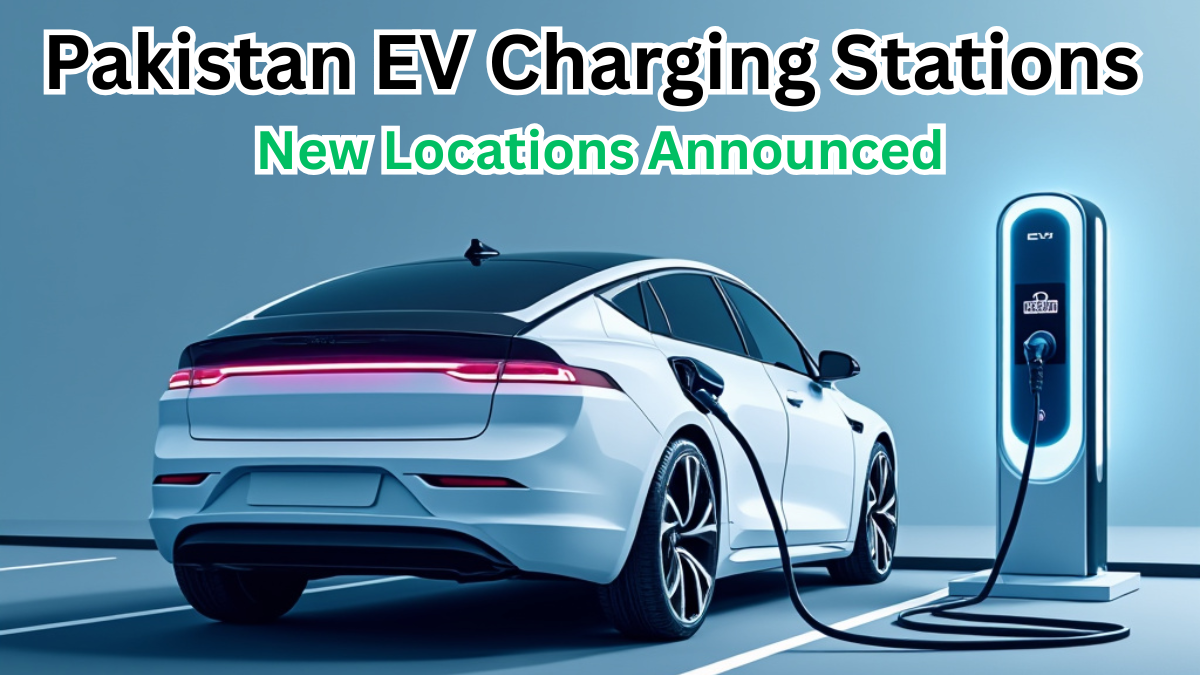Pakistan is accelerating its transition to electric mobility, with significant developments in EV charging infrastructure slated for 2025. The government’s ambitious plans aim to establish a robust network of charging stations nationwide, facilitating the adoption of electric vehicles (EVs).

Govt Expansion of EV Charging Infrastructure
The Pakistani government has unveiled a comprehensive strategy to enhance EV infrastructure, focusing on both urban and intercity connectivity. Key initiatives include:
-
Nationwide Charging Network: Plans to establish 3,000 EV charging stations by 2030, with 40 fast chargers on motorways and highways within six months.
-
Tariff Reduction: A 45% reduction in electricity tariffs for EV charging stations, lowering the cost from Rs71.10 per unit to Rs39.70 per unit.
-
Private Sector Participation: Oil marketing companies are required to convert 10% of their filling stations into EV charging sites.
BYD and HUBCO’s Fast-Charging Network
A significant development in Pakistan’s EV landscape is the partnership between BYD Pakistan and HUBCO Green (Private) Limited (HGL). This collaboration aims to install 128 DC fast chargers across the country over the next three years, with 50 chargers operational by December 2025. These chargers will be strategically located in urban centers, along intercity highways, and at high-traffic destinations such as shopping malls and hospitals.
Key Charging Station Locations
The expansion of EV charging infrastructure is set to cover various regions, enhancing accessibility for EV users.
| Region | Number of Stations | Notable Locations |
|---|---|---|
| Punjab | 2,000 | Lahore, Multan, Faisalabad |
| Islamabad | 200 | Blue Area, F-10, F-6 |
| Karachi | 300 | Saddar, Korangi, DHA |
| Rawalpindi | 150 | Saddar, Murree Road |
| Peshawar | 100 | University Road, Hayatabad |
Incentives for EV Adoption
To further encourage the adoption of electric vehicles, the government has introduced several incentives:
-
Subsidized Tariffs: The reduction in electricity tariffs for EV charging stations makes charging more affordable for consumers.
-
Financial Support: Dedicated loan products from banks for EV purchases, making EVs more accessible to a broader population.
-
Policy Framework: The National Electric Vehicle Policy outlines the government’s goals and offers a range of incentives to promote EV adoption.
Frequently Asked Questions
1. What is the target for EV charging stations in Pakistan by 2030?
The government aims to establish 3,000 EV charging stations across the country by 2030.
2. How many fast-charging stations are planned by December 2025?
A total of 50 DC fast-charging stations are expected to be operational by December 2025.
3. Which companies are involved in the development of EV charging infrastructure?
BYD Pakistan and HUBCO Green (Private) Limited (HGL) are collaborating to develop a nationwide fast-charging network.
4. What incentives are available for EV users?
Incentives include a 45% reduction in electricity tariffs for EV charging stations and dedicated loan products for EV purchases.
Conclusion
The expansion of EV charging infrastructure in Pakistan is a significant step toward a sustainable and eco-friendly transportation future. With government support and private sector involvement, the vision of a greener Pakistan is becoming a reality.
Click here to learn more